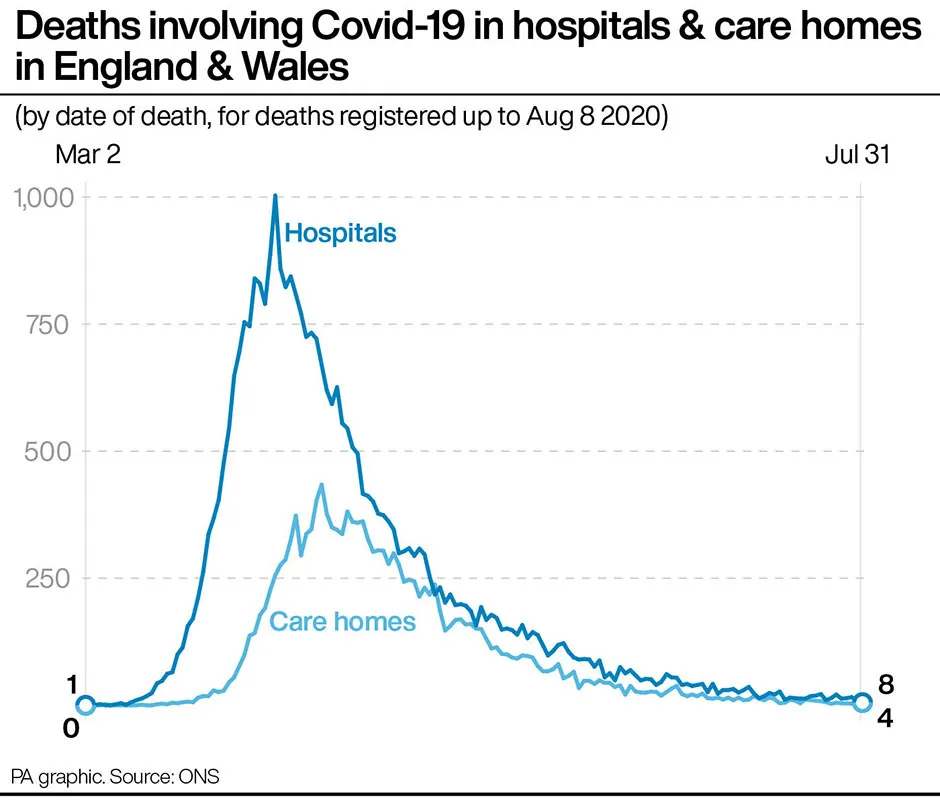Care home residents with coronavirus may be asymptomatic or not display typical symptoms, and should be tested if they are feeling generally unwell, new research indicates.
In response to COVID-19, a new testing service was rolled out in care homes in north Norfolk.The service, implemented by the enhanced care home team (ECHT) with north Norfolk general practitioners, identified COVID-19 symptoms amongst residents.
They found that around half of residents who tested positive for COVID-19 were asymptomatic, but some went on to develop symptoms.
According to the study by the University of East Anglia (UEA) and North Norfolk Primary Care, supported by UEA Health and Social Care Partners, in many cases symptoms were not typical and did not include a high temperature, cough or loss of smell.
Read more about asymptomatic COVID-19:
- COVID-19: Asymptomatic carriers should self-isolate ‘regardless of symptoms’
- Asymptomatic coronavirus found in 'up to 20 per cent of people'
Instead, residents who tested positive for COVID-19 often presented as generally unwell, researchers say in the study which has not yet been peer-reviewed.
The team suggests that effective testing and screening of residents and staff in care homes is vital for identifying cases and controlling the spread of the virus.
Dr Paul Everden, from UEA’s Norwich Medical School and innovation lead for north Norfolk primary care, said: “The COVID-19 pandemic is disproportionately affecting older people, especially in care homes.
“We wanted to develop a service with our local GPs, implemented by our ECHT, to keep residents and staff safe by early identification of infection.”
We found that older people in care homes are frequently asymptomatic, but can go on to become symptomatic
Dr Paul Everden
The ECHT tested 518 residents in 44 care homes, and 340 staff in 10 care homes, for COVID-19 using nose and throat swabs between 7 April and 29 June.Results and symptoms were compared for residents, and positive asymptomatic residents were followed for up to 14 days after testing.
The team found that 103 residents tested positive in 14 homes and 49 staff in seven homes.However, of the residents, only 38 (37 per cent) had typical symptoms at the time of the test.More than half (54 residents) were completely asymptomatic when tested, and 12 developed symptoms within 14 days.
Some of those who tested positive did experience typical symptoms such as a cough or fever, but feeling generally unwell was also common, a pre-print of the study shows.

Dr Everden said: “We found that older people in care homes are frequently asymptomatic, but can go on to become symptomatic, ie: presymptomatic. We also found that of those who tested positive, some were just generally unwell.”
He added that although the service evaluation was carried out in north Norfolk, similar results would be expected nationally.
Dr Everden said all UK care homes are at high risk of COVID-19 infection and residents are extremely vulnerable to infection and death.
“Older people in care homes have multiple co-morbidities including dementia, lung disease, a reduced sense of smell, and may have communication problems too," he said. "Together this means it is difficult for staff to identify typical listed COVID-19 symptoms – a temperature, cough and anosmia.
Read the latest coronavirus news:
- COVID-19: Psychological 'nudges' change intentions but not behaviour
- Face shields alone ‘unlikely’ to protect hairdressers and barbers
He added: “It may also be difficult for some patients to recognise or communicate that they are feeling unwell. At the time of launching this service there was no testing in the community, let alone in care homes.
“It was therefore vital that we put into place an ‘intelligent’ testing service that allowed the earliest pick up of infection with the least use of a precious resource. It was through this process that we identified asymptomatic and pre-symptomatic people who could potentially infect other residents and staff.
“Our trigger for testing a resident was any general deterioration in health status with isolation and then, if positive, testing of all other residents and staff. These findings are really vital for protecting care home communities and we hope they will help keep residents and staff safe – particularly if we are to face future waves of the pandemic in the UK where resources will again indeed be precious.”
Can I get the coronavirus from a parcel?
It’s hypothetically possible, but parcels pose a very small risk.
A US study found that the coronavirus can survive for up to 24 hours on cardboard (and paper is likely to be similar). So for the parcel to be contaminated, someone with COVID-19 would have had to touch or cough on your parcel within the past day.
The chances of this are low, but common sense advice would be to wash your hands with soap and water after opening the parcel, and then again after you’ve disposed of the packaging – especially if you or anyone else in your household is in one of the vulnerable groups.
The same study found that the virus can survive for up to three days on hard, shiny surfaces such as plastic and stainless steel – which is why door handles are particularly good vectors for the virus. So, if you receive anything packaged in plastic, such as takeaway deliveries, make sure to wash your hands after touching it, and especially before eating.
We don’t yet know how long the virus can survive on smartphone screens, but it’s likely to be up to three days. This means that you should ideally clean your phone with disinfectant wipes (Apple recommends 70 per cent isopropyl alcohol wipes), at least once a day.
Read more:
